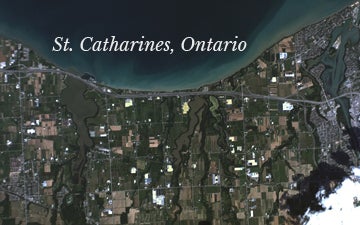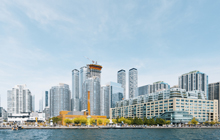Councillors want information on disturbing rise in St. Catharines homeowners unable to pay soaring tax bills

Revelations of rising numbers of property owners in St. Catharines unable to pay their property tax bills have prompted one city councillor to take action
St. Catharines, ON, May 29, 2025 – The revelation that since 2022 an additional 1,180 property owners in St. Catharines are unable to pay their tax bill has prompted at least one member of City Council to take action.
Less than two weeks after The Pointer reported a sharp rise in the number of properties in municipal tax arrears, information that had not been shared with council, Bruce Williamson is pushing to ensure future budget debates include this information, which can provide councillors with a well-rounded view of how previous tax increases are impacting property owners.
Between July 2023 and January 2024, Mayor Mat Siscoe and a group of six councillors have implemented three separate property tax increases, resulting in an overall hike of more than 20 percent for the average St. Catharines ratepayer. A freedom of information request by The Pointer revealed that as taxes surged, so too did the number of property owners struggling to keep up. In that same period, 1,180 additional properties were added to the list of those in arrears, a 34 percent increase, highlighting the financial strain many residents are facing in the wake of these tax hikes, which have come during a challenging economic period characterized by high inflation and unsustainable housing costs.
When asked by The Pointer whether information about the number of properties in arrears had ever been presented to Council, CAO David Oakes stated that while the figures were not formally reported, they are “certainly available to Council should they require the information.”
At the May 12 Council meeting, two weeks after The Pointer reported the figures, Councillor Williamson took steps to ensure Council receives a more comprehensive picture when debating future tax increases. As the meeting drew to a close, Williamson put forward direction to staff to “provide more detailed budget statistics, including the number of properties in arrears on property taxes, so we have a better handle on that information.”
The councillor’s direction received no resistance, comment, or discussion, suggesting that moving forward, Council will not only review financial figures in future budget debates, but will also have ready access to data reflecting some of the household impacts resulting from the tax increases they approve.
In response to questions from The Pointer, Williamson explained that he made the request “so that city council has more specific information on how the fiscal policies we make are affecting citizens across the socio-economic spectrum”.
Allan McKay is the manager of the Niagara Region branch of the Property Taxpayers Alliance, a not-for-profit corporation that advocates for efficient and effective use of property tax dollars collected by municipalities across Ontario. He responded to the request to have the information brought forward to the public.
“Kudos to councillor Bruce Williamson, this is great news. If implemented properly it will provide council and residents with a fuller understanding of the impact of these unsustainable property tax increases and their negative effect on our residents.”
Williamson was one of six councillors who opposed the record-breaking tax increases from the outset. As reported by The Pointer, seven months after losing the fight to reduce the historic 10.5 percent hike, the long-time councillor took the unusual step of advocating for a one-year tax freeze. He acknowledged the proposal was out of character, noting his general belief that taxes should keep pace with inflation. However, he argued that “a lot of people are struggling with affordability” and that the extraordinary burden created by the 10.5 percent increase just months earlier warranted a pause to allow residents time to recover. His argument was ultimately defeated, as the original seven-member bloc that supported the increases remained united.
Councillor Williamson emphasized that property taxes are a regressive form of taxation, meaning they disproportionately impact lower-income residents who may simply not have the means to absorb rising costs.
“While higher taxes, particularly property taxes, affect all of us,” he noted, “they can have life-altering consequences for those living paycheque to paycheque who may reach a point where they can no longer afford their basic obligations.”
In order for Council to fully understand the impact of tax increases, distinct from the effects of newly implemented tax billing practices, staff will need to properly disaggregate the data before presenting it. For example, new policies now allow the City to add unpaid water bills to property tax accounts, potentially compounding the burden on property owners.
Williamson states that having the information reported to them as they consider tax increases will make “the implications of these decisions on the lives of our friends and neighbours including the most vulnerable members of our community much more clear.”
McKay points out that “these tax increases have clearly had a negative impact on many in our community, and it is vitally important that staff report those negative impacts for public discussion.”
Ed Smith is a Local Journalism Initiative reporter with The Pointer based in the Greater Toronto Area. Title image: St. Catharines, Ontario Canada, Planet Labs satellite image by Planet Labs Inc., licensed under CC BY-SA 4.0.





(0) Comments